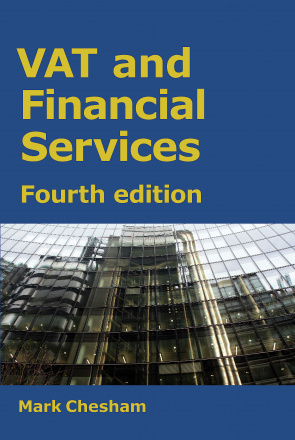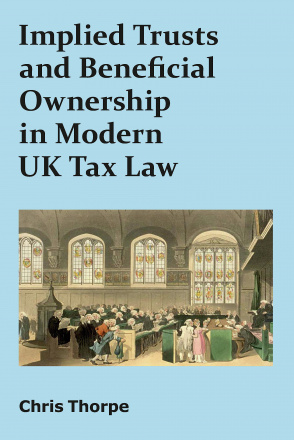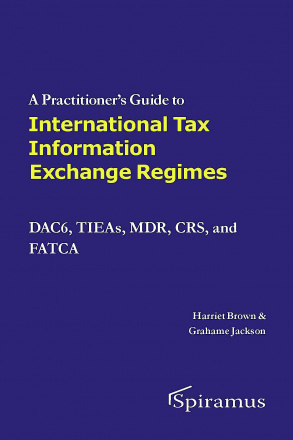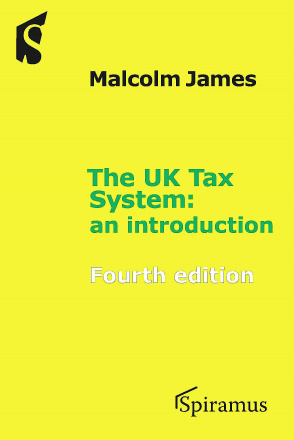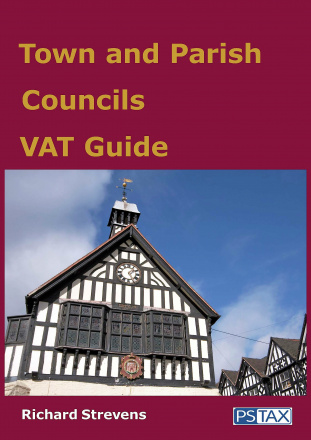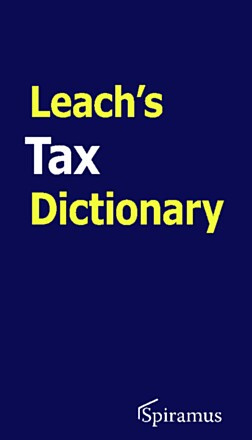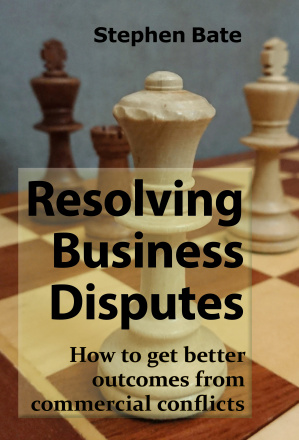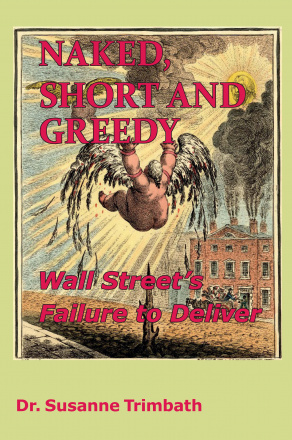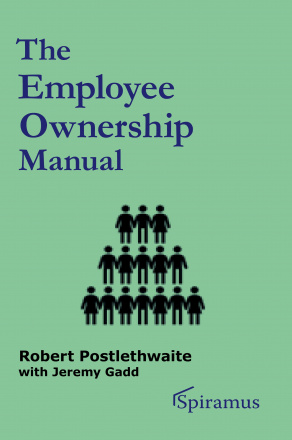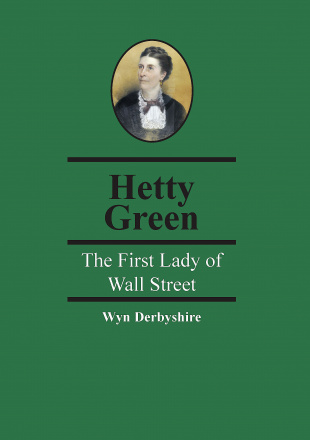Bess of Hardwick: An Elizabethan Tycoon
The life of Bess of Hardwick - one of the most remarkable people who lived in England in the late Tudor period. Her social ascendance from a relatively humble Midlands family to becoming the Countess of Shrewsbury.
Wyn Derbyshire describes how Bess navigated the political and legal challenges for her to retain her wealth and independence in the Tudor period.
Illustrated with colour pictures, the book also includes a timeline and family trees.
- AvailablePaperbackGBP 15.95 Add to basket
- AvailablePDF
GBP 15.95GBP 7.97 Add to basket
VAT and Financial Services (fourth edition)
VAT and Financial Services takes the reader through the relevant legislation case law, and legal concepts; examines the consequences of outsourcing; looks at the key issues facing financial services and insurance; and discusses the VAT cost sharing exemption. Since the last edition significant changes include: consequences of Brexit, the abolition of Cost Sharing Groups and significant developments in case law.
- AvailablePaperbackGBP 65.00 Add to basket
- AvailablePDF
GBP 65.00GBP 32.50 Add to basket
Jean Paul Getty
The meek shall inherit the Earth – but not its mineral rights
Jean Paul Getty (1892-1976) - a powerful, oil tycoon who was at one point the richest man in the world, with a private life described as ‘bizarre beyond belief’, but what drove him and shaped the man he was?
The author looks at the difficulties Getty had in interacting with others on a personal level, and why many have portrayed Getty as living a solitary, even lonely life, despite being surrounded by guards, staff, visiting business colleagues and female companions. Instead he suggests that Getty's fortune was to serve as the central foundation of his life. His need to create, defend and expand that fortune – all of which he successfully did – is key to understanding his life.
- AvailablePaperbackGBP 11.95 Add to basket
- AvailablePDF
GBP 11.95GBP 5.97 Add to basket
Implied Trusts and Beneficial Ownership in Modern UK Tax Law
Implied Trusts and Beneficial Ownership in Modern UK Tax Law looks at that gap which lies between books on tax and those on trust law, and tries to bridge the two. How and why is beneficial ownership important in UK tax? This book is ideal for academics and practitioners alike. Those practitioners specialising in trusts should find this book an interesting and useful aid to supplement their knowledge of implied trusts and the relationship between the more-usual express trusts. Whether you are new to the tax profession, or a seasoned professional, there will be something here for everyone.
- AvailablePaperbackGBP 40.00 Add to basket
- AvailablePDF
GBP 40.00GBP 20.00 Add to basket
A Practitioner's Guide To International Tax Information Exchange Regimes
DAC6, TIEAs, MDR, CRS, and FATCA
The sixth amendment to the Directive on Administrative Cooperation in the field of taxation (DAC6) and mandatory disclosure regimes (MDRs) in many jurisdictions have led to a large number of professionals potentially being required to disclose information in relation to their clients’ arrangements. The authors analyse the operation of the various automatic exchange of information regimes introduced in the last five years, including the OECD common reporting standards, DAC6 and MDRs, setting them in their historical context. They focus on the guidance offered by the Irish and UK tax authorities with reference to other guidance in Europe and beyond, where appropriate.
- AvailablePaperbackGBP 99.95 Add to basket
- AvailablePDF
GBP 99.95GBP 49.98 Add to basket
The UK Tax System
An Introduction
This book provides a guide to the structure of the UK tax system, the interaction between UK and EU law, and its application to various classes of taxpayer, as well as explaining the roles of the government departments who administer it and the full range of taxpayers rights and obligations. The fourth edition has been revised to cover the consequences of leaving the EU for the UK tax system and changes in loss and group relief rules.
- AvailablePaperbackGBP 35.00 Add to basket
- AvailablePDF
GBP 35.00GBP 17.50 Add to basket
Town and Parish Councils VAT Guide
This Town and Parish Council VAT Guide is an easy reference guide for those engaged in administering the financial affairs of town and parish councils in England and community councils in Wales. It focuses on the typical range of activities that these local authorities will have. It will be of use to town and parish clerks or treasurers and those responsible for the book-keeping of these organisations, as well as those responsible for auditing such bodies. The authors give the reader the basic concepts of the tax and a degree of familiarity with the common technical terms used by H M Revenue and Customs (HMRC) in its own guidance. The most common terms are set out in the glossary.
- AvailablePaperbackGBP 35.00 Add to basket
- AvailablePDF
GBP 35.00GBP 17.50 Add to basket
Leach's Tax Dictionary
Leach’s Tax Dictionary contains:
- 10,000 definitions
- 3,000 abbreviations explained
- 200 pages of tax, financial and historical data related to tax
- Where applicable terms are explained with reference to relevant case law, statutes or guidance
Use the special offer code Ebook4free to get the print and digital version together at no extra cost.
- AvailablePaperbackGBP 85.00 Add to basket
- AvailablePDF
GBP 85.00GBP 42.50 Add to basket
Resolving Business Disputes
How to get better outcomes from commercial conflicts
Resolving Business Disputes will give company directors, business executives and other commercial decision-makers a unique and essential insight into how to resolve business disputes and to reach the best outcomes by making effective decisions. The book is a guide, explaining the unique choices created by commercial conflict, basic workings of the law about disputes, the main avenues of dispute resolution, the forecasting of litigation outcomes for cases going to court, the funding of legal cases, the management of the risk involved, the creation of a dispute strategy, how to make the best use of legal advice and how to negotiate effectively. Also covers implications of Covid-19 for trade and commerce, including issues for the resolution of contract disputes.
- AvailablePaperback
GBP 39.95GBP 19.98 Add to basket - AvailablePDF
GBP 19.95GBP 9.97 Add to basket
Naked, Short and Greedy
Wall Street's Failure to Deliver
Rigged financial markets and hopeless under-regulation on Wall Street are not new problems. In this book, Susanne Trimbath gives a sobering account of naked short selling, the failure to settle, and her efforts over decades, trying to get this fixed. Twenty-five years ago, Trimbath was working “backstage at Wall Street” when a group of corporate trust specialists told her about a problem in shareholder voting rights. When she went to senior management at Depository Trust Company (DTC), then and still the largest securities depository in the world, they brushed it off saying, “You can’t balance the world.” Ten years later, a lawyer from Texas would tell her that the same problem was about to blow up the financial markets: Wall Street brokers are using short sales and fails to deliver to grab the assets of American entrepreneurs. This is a cautionary tale. What started as a regulatory failure turned into a regulatory crisis. Shareholder democracy is in shambles. The institutions that were established to correct a problem of trade settlement failures have instead exacerbated the problem. Global financial markets may not survive what comes next.
To buy or listen to a sample of the audiobook via Audible, click here.
- AvailablePaperbackGBP 29.95 Add to basket
The Employee Ownership Manual
This book is intended to meet a range of different needs and to cater for different levels of knowledge about employee ownership. If you are considering making your company employee-owned or you are advising someone going through that process, and in either case are new to the topic, you can build up your knowledge levels from Chapter 1. Alternatively, the book can be used as a reference work if you have a particular question to answer.
The book is intended as practical guide rather than a highly detailed technical treatise. Its priority is to explain key issues in an accessible fashion and to raise awareness of where further exploration and advice may be important.
- AvailablePaperbackGBP 49.95 Add to basket
- AvailablePDF
GBP 49.95GBP 24.98 Add to basket
Hetty Green
The First Lady of Wall Street
Hetty Howland Green (1834-1916), born Hetty Howland Robinson, and known in her later years as “The Witch of Wall Street”, was born in the whaling town of New Bedford, Massachusetts to Quaker parents. This biography charts Hetty Green’s extraordinary ascent up the pyramid of wealth to a point where, in the earliest years of the twentieth century, she was being identified as the richest woman in America.
The first in a series of brief biographies of significant tycoons, this is an insight into the life and methods of one of the earliest and most influential business women in the US. It examines the source of her wealth, and her method of building upon that. It also profiles those who helped or thwarted her along the way.
130 pages. Includes a family tree, further reading, timeline and index.
- AvailablePaperbackGBP 11.95 Add to basket
- AvailablePDF
GBP 11.95GBP 5.97 Add to basket


